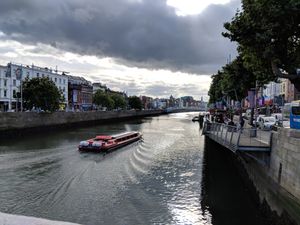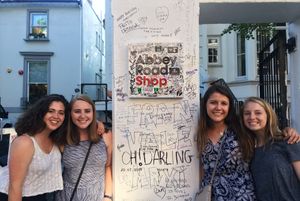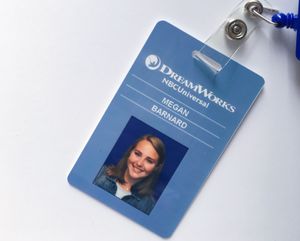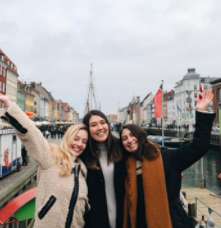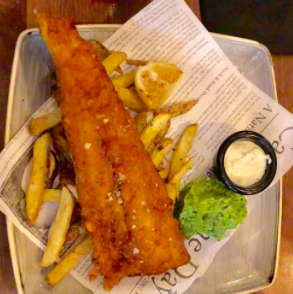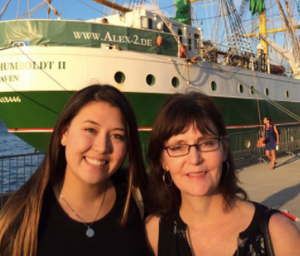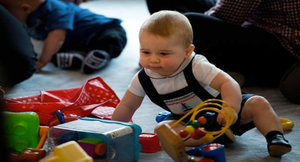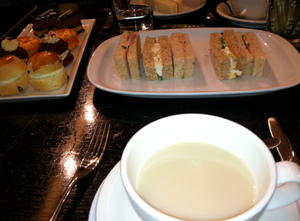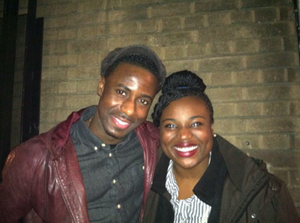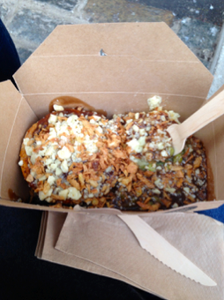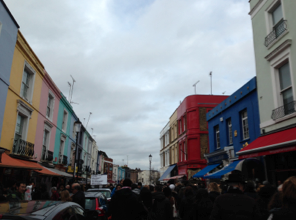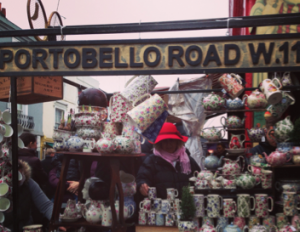To answer the questions posed in this title, yes! And yes!
I think an overwhelming majority of COM students choose to study abroad during their junior year. I don’t have any stats, but I’m sure someone in the Undergraduate Affairs office can give you some numbers. By the beginning of my junior year, however, it became clear that this wasn’t the best choice for me. And guess what? That’s okay!
After I made the decision to study abroad senior year, there were plenty of times when I worried I was making the wrong choice. The idea of coming back to campus and only having one semester left terrified me. I couldn’t bear the thought of missing Splash. My heart yearned to see the fall leaves cover Bay State Road one last time.
But as this semester approached, I grew more and more secure in my decision. Being abroad as a senior has given me an opportunity to reflect on my time at BU. As a senior, I feel so much better equipped to handle some of the challenges that come along with studying and interning in this new environment.
Just to make myself feel ever more sure that I’ve made an excellent life decision, I’ve compiled a list of reasons why it’s a great idea to study abroad during senior year.  I’m studying abroad in London, but here’s a photo of me in front of the Colosseum. Go abroad so you can book cheap flights to Italy!
I’m studying abroad in London, but here’s a photo of me in front of the Colosseum. Go abroad so you can book cheap flights to Italy!
#1: Seize That Senior-Year YOLO Attitude
As a senior, you’re constantly aware of the fact that you’re doing things for the last time. You only get to experience college once, and it’s so easy to forget that as an underclassman. Being a senior has made me seize every opportunity I’ve had abroad, because I’m hyperaware of the fact that I’ll never have an opportunity like this again. I’m so lucky to be here, so I’d better act like it, right?
#2: Take time to get experience, experience, and more experience
Did someone say experience? If you’re a COM student choosing to do an abroad internship program, it feels SO good to go abroad knowing a thing or two (or a lot more than a thing or two) about your field. Junior year me wouldn’t be as confident at her abroad internship as senior year me is. I don’t regret taking the extra time to build my resume and recognize what I wanted to get out of an internship.
 Follow me on Instagram @halisimone for more cloudy-sky London content.
Follow me on Instagram @halisimone for more cloudy-sky London content.
#3: Gain New Appreciation for BU
It’s going to be so sad to leave London in December. But when I come back to BU, I know I’m going to cherish every moment. Knowing that I have such little time left to appreciate the COM lounge and the Warren Towers Starbucks makes me — dare I say it — excited (and emotional) to return back to campus. Wow, can you believe I’m weeping now?
This post isn’t here to convince you to go abroad senior year instead of junior year. It’s to remind you that you should go abroad whenever you want to! Think about what’s best for YOU, and how you want to shape your college experience and timeline. If that means having a little less time to enjoy the BU Pub, so be it (I hear the pubs are better in London anyway).


